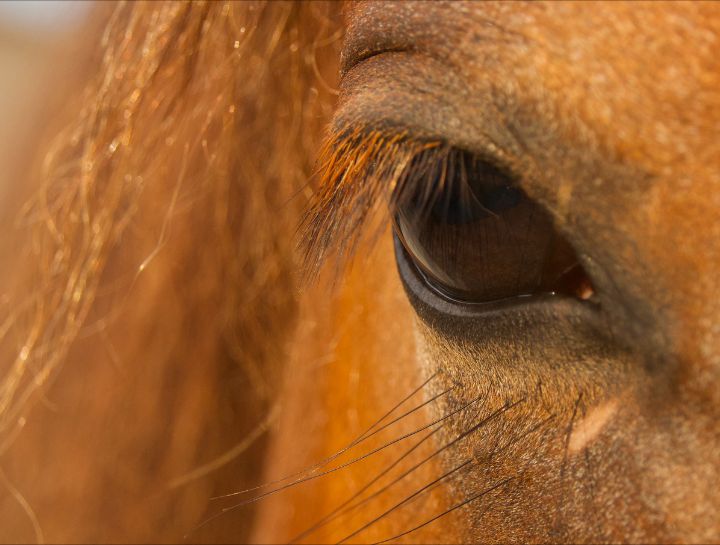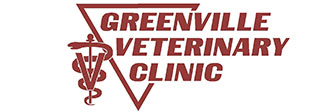Equine Care
Preventive care, nutritional advice, and general horse care.
Preventative Wellness Healthcare
Greenville Veterinary Clinic offers comprehensive equine services. We offer plans customized for your needs to ensure the overall health of your horse and minimize emergency situations.
Preventative Healthcare services include wellness examinations, vaccinations, equine dentistry, intestinal parasite control, and Coggins testing.
Vaccinations
Greenville Veterinary Clinic uses the best quality, most up-to-date vaccinations available. We store and transport our vaccines properly, so there is no need to worry about the quality of your vaccines. Our doctors are more than happy to discuss vaccination pros and cons. Though it may seem like a good idea to buy your own vaccines and administer them yourself, most manufactures only guarantee the safety and efficacy of their vaccines when administered by a veterinarian.
Equine Dentistry
Greenville Veterinary Clinic provides comprehensive dental care for most equine needs. Horses at any stage in life benefit from annual dental examinations. This routine care can reduce the amount of tooth loss, prolong lifespan, and prevent other medical conditions such as choke and colic. Equine dentistry services are offered both at the clinic and on your farm for the comfort and convenience of your horse.
Intestinal Parasite Control
Recent research has shown that internal parasites have become more and more resistant to dewormers. This is a growing concern to all livestock owners, including horses. With no new dewormers on the market, it is more important now than ever to ensure that deworming protocols are effective and do not promote parasite resistance.
Most parasitologists now recommend a targeted, evidence-based approach to parasite management called strategic deworming. Strategic deworming utilizes fecal egg counts (FEC) and fecal egg count reduction testing (FECRT) to create a deworming protocol specifically designed for your horses and your farm.
If you are interested in strategic deworming, give us a call and talk to one of our staff members. This may be a program that can help you provide a higher level of care for your horse, while helping to maintain the effectiveness of the available dewomers for your horses. If strategic deworming is not an option for you, we can still evaluate your current deworming program by utilizing fecal egg counts.
Coggins testing
A “Coggins” test is a blood test that detects antibodies to the disease Equine Infectious Anemia (EIA). EIA is caused by a virus that causes affected equines (horses, donkeys, mules) to have fevers, anemia (low red blood cell counts), edema (stocking up), and weight loss or muscle wasting. Horses that become infected will carry the disease for life. These carriers often show no signs of disease and appear healthy. EIA is transmitted by flies (horse flies and deer flies) and the carrier horses serve as a source of disease transmission. Because these flies travel to your farm, your horses are at risk even if they never leave the stable. There is no vaccine for EIA and there is no treatment.
A Coggins test requires a veterinarian to draw blood and send it to an outside laboratory to test for EIA. A negative Coggins tests is required to issue health certificates for horses traveling to horse shows, trail rides, and sale.
Laboratory Services
There are times when it is necessary to perform additional laboratory tests for diagnosis. Greenville Veterinary Clinic has the capability to perform a wide range of laboratory tests on blood, urine, feces, and biopsied tissue in our clinic.
Although we do offer laboratory testing in our clinic, we do have to send some specimens off to a referral diagnostic lab. We ship samples Monday through Thursday and often have results back within a week.
General Surgery on Farm or at Clinic
Greenville Veterinary Clinic performs soft tissue surgery by using standing sedation or by laying them down. A few examples of the surgeries we do include castrations, tumor biopsy, laceration repair and reconstructive surgery.
Lameness Evaluations
Regular hoof care is extremely important in equine care. If lameness is observed, we offer a complete and thorough evaluation, including digital radiographs, to assess the source of the problem. Lameness can be caused by a variety of issues, including:
- Injury to bone, muscle, tendons, or ligaments
- Diseases
- Overworking
- Infection or abscess
- Neurological Disorders
- Farrier work
- Horse Conformation
If you are planning to buy a horse, contact us regarding an equine pre-purchase exam. An important component of pre-purchase exams is to evaluate for lameness.
Digital Radiology
For lameness, pre-purchase examinations or consult with your farrier, Greenville Veterinary Clinic has the ability to use digital radiology at the clinic or on-farm. Digital radiographs produce a much clearer, more detailed image that we can view immediately.
Digital radiographs can be emailed or saved to a disk and given to you as part of your personal medical records for your horse. Images can also be shared quickly via email to specialists when a second opinion is desired.
Reproductive Services
Greenville Veterinary Clinic offers equine reproductive services including reproductive ultrasounds, artificial insemination, and semen evaluation.
The use of reproductive ultrasound for breeding evaluation, as well as insemination timing, increases the likelihood of pregnancy in brood mares. Pregnancy diagnosis by ultrasound can be performed at or after 16 days post-insemination. This allows a sufficient amount of time to reorder semen if the mare is not pregnant. The technology of reproductive ultrasound is safe and relatively low in cost, making it a necessary tool for the equine breeder. Our veterinarians offer skill and experience in the use of reproductive ultrasound.
Once your mare is in foal, we will send out reminders when pregnancy-related vaccines are due. Our doctors are also here to help 24/7 for any foaling complications or questions.
Microchipping
Microchipping is considered permanent identification for animals, including horses, that lasts a lifetime. It is a simple injection that takes a couple of seconds. Most horses do not notice as the chip is injected under the skin below the mane. Once the tiny chip is in place, it cannot be detected by hand. A scanner is used to read the individually unique microchip number. The microchips used at Greenville Veterinary Clinic are ISO compliant, meaning that they are internationally recognized as official identification.
Why should you microchip your horse? The microchip used for your horse has a number that is unique, cannot be altered, and eliminates doubt. Horse owners use it for many different reasons, such as:
- Proof of ownership
- Health certificates and medical records
- Compliance with FEI and USEF rules
- Compliance with USHJA rules
- Theft protection and recovery
- Natural disaster recovery
- Event and Registry requirements
- Sales documents
For more information or to schedule an appointment, call us at (618) 664-0640 or request an appointment online.

